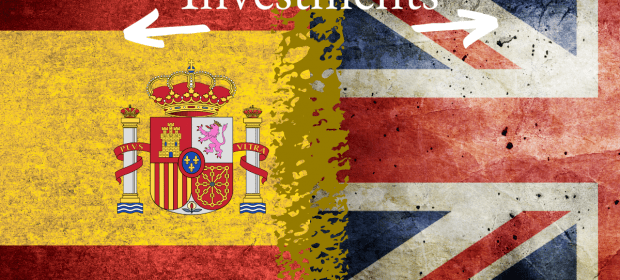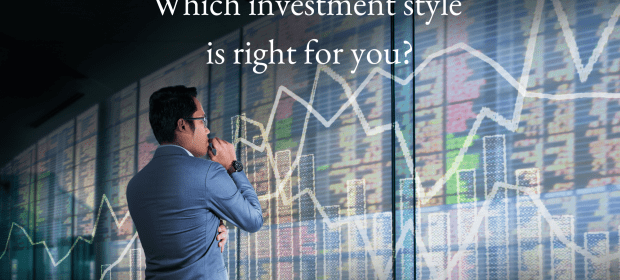What’s been happening?
It’s been a very turbulent period over the past few weeks as Coronavirus has taken hold and the impact on the financial markets has been almost unparalleled. Oil is now cheaper per litre than milk or bottled water due to an “oil war” between Russia and Saudi Arabia leading to an oversupply of oil in the markets. In addition, with fewer people on the roads and most airlines grounded, storage facilities are believed to be only months, possibly weeks away from full capacity. Some speculate that the price of oil could fall to zero! Those assets deemed to be “safe havens” such as gold have provided some refuge but it is still trading lower today than it was towards the end of February.
Most of the major financial markets experienced falls of c. 30% during the end of February and into March and whilst there has been some recovery, there remains much volatility and it’s not clear yet that the bottom of this dip has been reached.
Meanwhile, every day there is news of companies cutting or suspending dividend payments to shareholders and as I write this the UK’s major lenders have all agreed to scrap pay-outs to shareholders during 2020 (after receiving a strongly worded letter from the Prudential Regulation Authority). The banks are also being asked to scrap bonuses to their executives.
Why? Well, this should provide the banks with a much needed, extra £8bn cushion as they face increased demands to provide financial support to individuals and businesses in the form of loans, mortgage holidays etc.
What should you be doing?
For those who are close to retirement age, I cannot overstate the importance of speaking to your financial advisor during these challenging times. Essentially, the closer you are to needing to draw a pension or access your investments, the bigger the impact this drop in the markets will have for you.
For those of working age with a pension scheme or schemes and/or savings invested in the markets what actions can you take? Fund managers have been working hard to mitigate the extreme movements in the markets and protect the value of the funds they manage, but there is no escaping that a significant “correction” has taken place. For those of you brave enough to look at the value of your pension fund/s, most will be facing a reduction in value in the region of 10-25%.
It is impossible to say that there will not be further falls, however history has shown that pulling your money out now (where this is an option) or re-calibrating your portfolio by moving out of equities and into bonds, gold, cash etc. is rarely the best course of action. Typically, these decisions are taken too late (when many of the falls in value have already taken place) and re-entry into the markets is typically made too late (missing out on some of the gains that will have already taken place). The result of this is to lock in the losses that have taken place. Remember, these are only paper losses at this stage, albeit painful to bear – and it is only once you move out of the assets or remove cash that a loss will be realised. Whilst it takes a steely resolve and not a little anxiety, it is nearly always better to stay invested and ride out the storm.
It is certainly a good time to review the balance of your investments in your pension scheme or Assurance Vie to ensure they still match your risk profile. But be careful about disproportionately moving out of equities at this stage, as this may hinder the growth of your portfolio as the markets return to growth.
What next?
Markets will recover as they have always have (think 2008 Financial Crisis or “Black Monday” in 1987) – it’s simply a case of when and there could be more volatility over the coming months before we see this happen. There are some early signs of green shoots in Asian markets, for example, factory data from China showing a sharp step up in activity in March.
But the news from many European counties and the US is grim. Most developed nations, and many others besides, will experience a sharp and deep recession. The hope remains that the decline in growth will be “V” shaped as opposed to “U” shaped, meaning the recession will be short-lived and the recovery quick and significant. This is not guaranteed however, and the length of the downturn will depend on many factors, perhaps the greatest being the spread and extent of Coronavirus cases over the coming months and the speed and size of response from governments and central banks.
So, is it a good time to invest? Possibly, but with caution and perhaps a “drip-feed” rather than an “all-in” approach. And as always, it’s better to have a financial advisor working alongside you to provide professional guidance in these matters.
Finally
On a personal note, apart from when I am out meeting clients, most of the time I work from home – from the end of our dining room table which is in a quiet room during the day. I occasionally remind my teenage children to be quiet at the times they are at home, particularly if I am on the phone speaking with a client. Yesterday, my 13 year old son, stuck his head around the door and said, “Could you guys keep the noise down please?“ My wife and I were discussing the challenges of on-line food shopping and he was in the next room on a live streamed lesson, so his request was perfectly reasonable. But times have certainly changed!
The coming months are going to be very challenging for us all. We are seeing the consequences of Coronavirus both in terms of the restrictions we all have on our way of life and more devastatingly on the lives lost across so many countries. At this time, the overriding focus for us all must be on the welfare and safety of ourselves, family, friends and neighbours. In addition, on top of these concerns, many people will become stretched financially.
As the French-born Etienne de Grellet said, “I shall pass this way but once; any good that I can do or any kindness I can show to any human being; let me do it now”.















